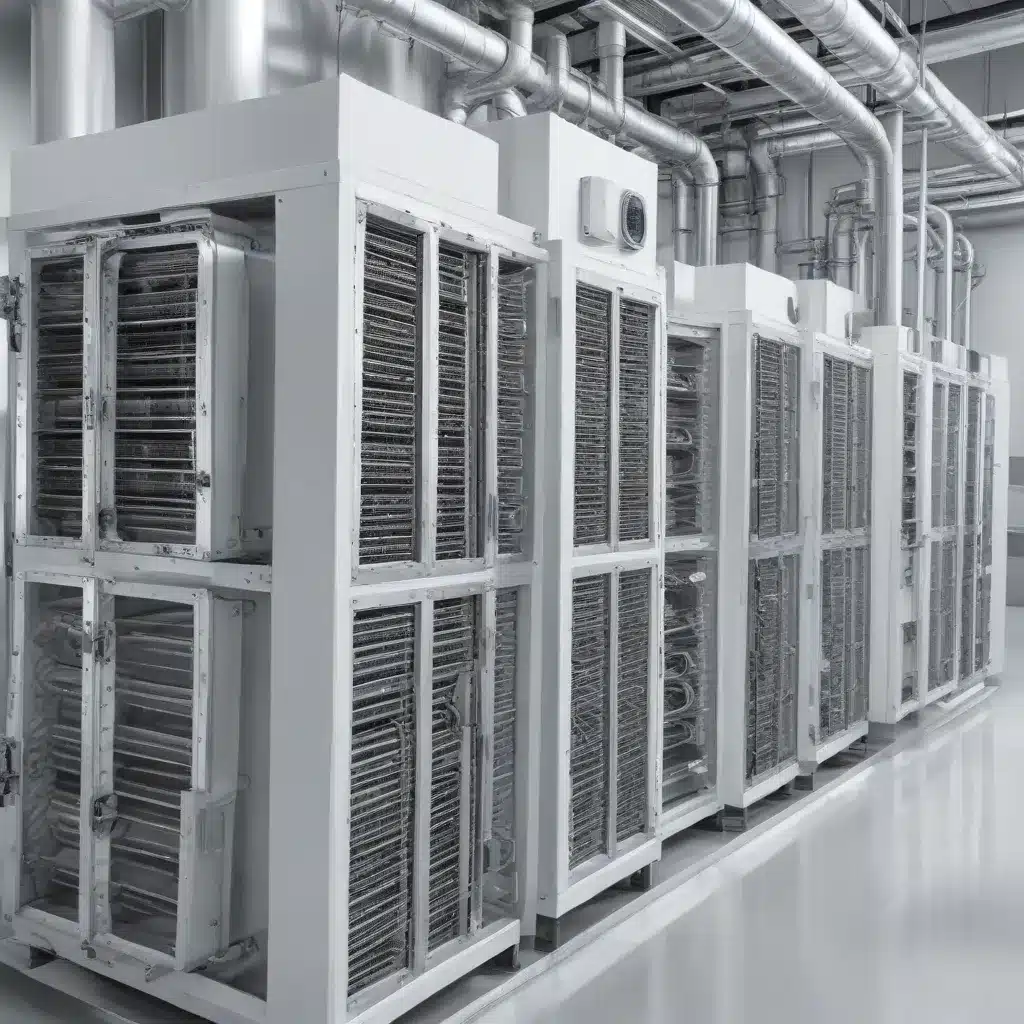
The Advantages of Air-Cooled Heat Exchangers in Pharmaceutical Manufacturing
Air-cooled heat exchangers have become increasingly popular in the pharmaceutical industry due to their numerous advantages over traditional water-cooled systems. These robust, efficient heat transfer devices offer several benefits that make them well-suited for pharmaceutical applications:
Energy Efficiency: Air-cooled heat exchangers utilize the ambient air as a cooling medium, eliminating the energy-intensive pumping and cooling towers required for water-based systems. This results in lower operating costs and a smaller carbon footprint.
Reliability and Reduced Maintenance: With no risk of water leaks, fouling, or scaling, air-cooled heat exchangers require less frequent maintenance, ensuring consistent performance and minimizing downtime.
Versatility and Scalability: Air-cooled units can be easily scaled to accommodate changes in production capacity, allowing pharmaceutical facilities to adapt to evolving needs without extensive infrastructure modifications.
Hygienic Design: The closed-loop air-cooling system reduces the risk of microbial contamination, making air-cooled heat exchangers well-suited for sensitive pharmaceutical applications.
Water Conservation: In regions with limited water resources, air-cooled heat exchangers offer a sustainable alternative, reducing the strain on local water supplies.
Navigating the Regulatory Landscape
The pharmaceutical industry is subject to a robust regulatory framework to ensure product quality, patient safety, and environmental compliance. The integration of air-cooled heat exchangers into pharmaceutical manufacturing operations must navigate this complex landscape, addressing key regulatory considerations:
Current Good Manufacturing Practices (cGMP)
The U.S. Food and Drug Administration (FDA) and other regulatory bodies enforce cGMP regulations to maintain high standards of quality control and cleanliness in drug production. Air-cooled heat exchangers must be designed, installed, and maintained in accordance with cGMP requirements, ensuring they do not introduce any contaminants or compromise critical manufacturing processes.
Environmental Regulations
Air-cooled heat exchangers must comply with environmental regulations, such as those governing air emissions, noise levels, and waste management. Pharmaceutical facilities must carefully evaluate the impact of these units on their overall environmental footprint and ensure they meet all applicable local, state, and federal regulations.
Energy Efficiency and Sustainability
As the pharmaceutical industry increasingly prioritizes sustainability, air-cooled heat exchangers can play a crucial role in meeting energy efficiency and greenhouse gas reduction targets. Compliance with voluntary programs, such as ENERGY STAR® certifications, can help pharmaceutical companies demonstrate their commitment to environmental responsibility.
Facility Layout and Process Integration
The integration of air-cooled heat exchangers into existing pharmaceutical facilities requires careful planning and close coordination with regulatory agencies. Aspects such as equipment placement, air circulation, and process interfaces must be thoroughly evaluated to ensure seamless integration without disrupting critical manufacturing operations.
Maintenance and Documentation
Rigorous maintenance protocols and detailed documentation are essential for air-cooled heat exchangers operating in pharmaceutical environments. Comprehensive maintenance logs, equipment calibration records, and routine inspections ensure compliance with cGMP requirements and facilitate regulatory audits.
Strategies for Successful Integration
To navigate the regulatory landscape and optimize the benefits of air-cooled heat exchangers in pharmaceutical manufacturing, consider the following strategies:
-
Engage with Regulatory Authorities: Establish open communication with regulatory agencies, such as the FDA, to understand the specific requirements and guidelines applicable to your facility. Early engagement can help identify potential challenges and facilitate a smooth integration process.
-
Implement a Robust Quality Management System: Develop a comprehensive quality management system that addresses the design, installation, and maintenance of air-cooled heat exchangers. This system should include detailed standard operating procedures, training programs, and documented validation processes.
-
Prioritize Environmental Compliance: Carefully assess the environmental impact of air-cooled heat exchangers and implement strategies to comply with all relevant regulations. This may include noise mitigation measures, air emission control systems, and waste management protocols.
-
Optimize Energy Efficiency: Leverage the energy-saving benefits of air-cooled heat exchangers by integrating them into your facility’s overall energy management plan. Consider pursuing energy efficiency certifications to demonstrate your commitment to sustainability.
-
Ensure Seamless Process Integration: Collaborate closely with your engineering and manufacturing teams to seamlessly integrate air-cooled heat exchangers into your existing processes. Thorough testing and validation are crucial to maintaining cGMP compliance and avoiding disruptions to critical operations.
-
Implement Comprehensive Maintenance Practices: Develop and strictly adhere to a preventive maintenance program for air-cooled heat exchangers. This includes regular inspections, cleaning, and documentation to ensure reliable performance and regulatory compliance.
By adopting these strategies, pharmaceutical companies can navigate the regulatory landscape and successfully integrate air-cooled heat exchangers into their manufacturing operations, leveraging the numerous benefits these robust heat transfer devices provide.
The Future of Air-Cooled Heat Exchangers in Pharmaceutical Manufacturing
As the pharmaceutical industry continues to evolve, the demand for energy-efficient, reliable, and hygienic cooling solutions will only grow. Air-cooled heat exchangers are well-positioned to play a pivotal role in the industry’s pursuit of sustainable, compliant, and adaptable manufacturing processes.
With ongoing technological advancements, the performance and versatility of air-cooled heat exchangers are expected to improve further. Innovations in materials, design, and control systems will enhance their efficiency, durability, and ease of integration, making them an increasingly attractive option for pharmaceutical facilities.
Moreover, as the industry places greater emphasis on environmental stewardship, the water-saving and energy-efficient characteristics of air-cooled heat exchangers will become even more valuable. Pharmaceutical companies that proactively adopt these technologies and navigate the regulatory landscape will be well-equipped to meet evolving sustainability goals and maintain a competitive edge.
By staying abreast of regulatory developments, collaborating with industry experts, and continuously improving their air-cooled heat exchanger integration strategies, pharmaceutical manufacturers can ensure the reliable, compliant, and efficient operation of these critical heat transfer systems. The successful integration of air-cooled heat exchangers will be a key driver in the industry’s pursuit of more sustainable, flexible, and resilient manufacturing practices.
To learn more about how https://www.aircooledheatexchangers.net/ can assist you in navigating the regulatory landscape and optimizing the use of air-cooled heat exchangers in your pharmaceutical facility, please visit our website or contact us directly.

